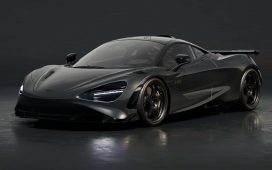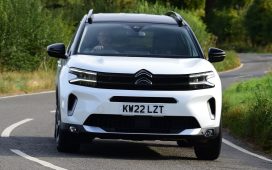In this weekly feature, we highlight a company that reported earnings outside of analysts’ expectations, with a focus on what the beat or miss says about consumer demand and economic activity.
Key Takeaways
- Honda Motor Company (HMC) posted stronger-than-expected earnings for its fiscal second quarter ended September, boosted by strong auto sales in the U.S.
- Honda’s U.S. auto sales, including those of its premium Acura brand, totaled more than 339,000 units for the quarter ended September, up 53% from the same quarter last year.
- The company’s share of the U.S. auto market rose 2 percentage points from the same quarter last year, to 8.5%, with 40% of automobile sales coming from North America.
- U.S. consumers continue to buy up cars despite rising interest rates on auto loans and persistently high inflation.
- Honda executives acknowledged default rates on auto loans have risen in the U.S., but said this mostly reflects a “normalization” back to pre-pandemic trends.
Honda Motor Company (HMC) posted stronger-than-expected earnings for its fiscal second quarter ended September, boosted by strong auto sales in North America as U.S. consumers continued to buy up cars, despite fewer incentives and rising interest rates on auto loans.
The automaker posted a profit of 270.98 billion yen ($1.79 billion), or the dollar-equivalent of 34 cents per share, which exceeded consensus estimates of 246.46 billion yen ($1.63 billion) compiled by Visible Alpha. Revenue totaled almost 5 trillion yen ($330 billion), up from 4.25 trillion yen ($280 billion) in the same quarter last year.
The automaker benefitted from strong U.S. sales, which offset weakness in China as competition there, particularly in the market for new energy vehicles (NEVs), heats up. Honda’s auto sales in the U.S., including those of its premium Acura brand, totaled more than 339,000 units for the quarter ended September. That was up 53% from the same quarter last year, which far exceeded the average gain of 16% for the industry, according to Cox Automotive.
Meanwhile, the company’s share of the U.S. auto market rose 2 percentage points from the same quarter last year, to 8.5%, though it remained below pre-pandemic levels. As of the latest quarter, roughly 40% of Honda’s automobile sales came from North America.
Honda upped its guidance for the 2024 fiscal year. It now projects a full-year operating profit of 1.2 trillion yen ($7.9 billion), up from the previous estimate of 1 trillion yen ($6.6 billion). Worldwide unit sales of autos are now estimated at 2.92 million units, up from 2.88 million in the prior estimate.
Shares of Honda are up roughly 38% so far this year.
TradingView
US Car Sales Robust, Foreign Automakers Benefit
Despite financial challenges including rising interest rates on auto loans and high vehicle prices, U.S. consumers continue to buy up cars. In the third quarter, Americans bought cars at an annualized rate of more than 16 million units, up from about 14 million in the same period last year.
Foreign automakers like Toyota (TM) and Honda have seen some of the biggest relative gains, perhaps driven by improved inventories and easing semiconductor supply chain constraints, which hobbled the auto industry during the pandemic.
According to data published by the Bureau of Economic Analysis (BEA), sales of newly-built autos imported from abroad totaled $56.1 billion in the third quarter, which was up roughly 7% from $52.4 billion in the year-ago quarter. For the six-month period ending in September, roughly three-quarters of Honda vehicles globally were manufactured outside of the U.S.
According to Cox Automotive, Honda raised its incentives for customers in America by 86% over the prior quarter to an average of $1,666 per vehicle but that is still well below the industry average of $2,368.
Delinquencies on Auto Loans Rising
Executives on Honda’s earnings call expressed some concern about rising delinquencies on auto loans in the U.S., saying that bad debts—the root of the delinquencies—are “at a historic level.”
The share of auto loans considered seriously delinquent, or those more than 90 days past due, rose to 2.5% in the third quarter, according to the New York Fed’s latest Credit Access Survey, which was higher than the pre-pandemic rate. Total auto loan debt outstanding rose by $13 billion to a record $1.6 trillion.
That’s the result of the Federal Reserve’s interest rate hikes, which have pushed borrowing costs on everything from mortgages to credit cards and auto loans to multi-decade highs. A sustained rise in auto loan delinquencies could potentially lead to lower sales for Honda and other automakers.
Despite this, Honda CFO Eiji Fujimura said on the company’s earnings call that rising delinquencies reflected a “normalization” back to pre-pandemic levels, and that this development was “nothing really of a concern.”










